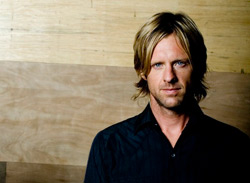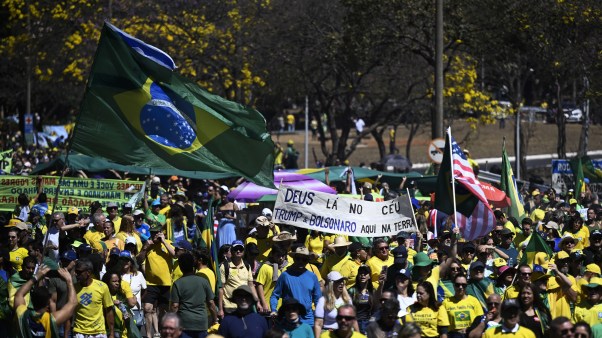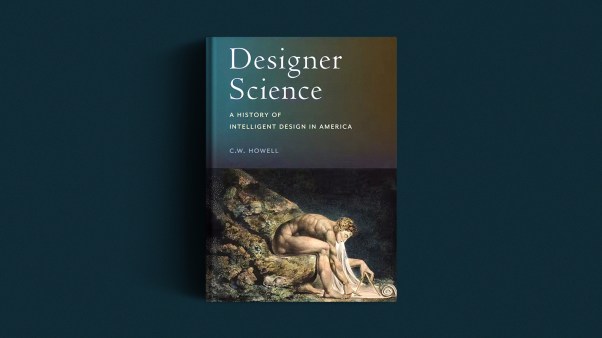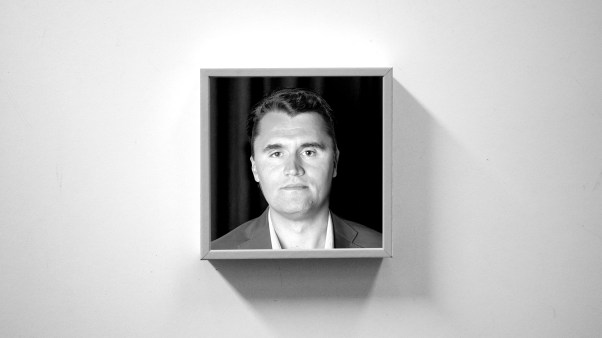Since Switchfoot released Oh! Gravity in 2006, frontman Jon Foreman has won acclaim for his solo work and formed the new group Fiction Family with Nickel Creek’s Sean Watkins. Meanwhile, Switchfoot built a new recording home, the Studio of the Foot, for their new independent label, lowercase people records. So is the band’s new release, Hello Hurricane, back to basics, or did Switchfoot reinvent themselves amid all this change? Foreman sat down with Christianity Today and spoke about writing songs about finding hope amid hurt, theology, philosophy, and wearing the Christian label … or not.

What are some of the Big Things you’re saying with the new album?
This record communicates hope. I’ve gone through really dark times, when I can’t find hope to write about. This was the hardest record we’ve ever made, because we were pushing for something bigger than we already attained. A big part of that lyrically was trying to push through the clouds to find the hope that transcends the pain.
What can you tell us about those dark times?
The past four years of my life have been among the darkest times I’ve ever been through. To tell you more here would be giving a piece of myself that I feel less comfortable with. I’d rather sing it out. It’s all in the songs. I’m incredibly fortunate to be able to hide behind lyrics!
With songs like “Red Eyes,” “Sing It Out,” “Mess of Me,” and “Hello Hurricane,” it’s not the typical “positive and encouraging” CCM album, but you still say it’s an album of hope. What is that hope?
Hope, for me, does not ever start with a sunny day. Hope, for me, does not start with what you’ve already attained. If it’s there in front of you physically, it’s no longer faith. Hope is an expectancy that is by the very nature of the word built into the future. Many of these songs are singing from a place where the punchline of joy and happy endings has not yet arrived. We’re still living in a very broken world. I still have a broken heart. It’s from that context that hope is possible. This record is definitely singing from broken places, but it’s not landing there. It’s continuing to press further than where the song began. Music is this incredible vehicle where I’m allowed to figure things out for myself in the song.
Especially in your solo work, your songwriting is often explicitly biblical. Can you describe the theological perspective that shapes your musicianship?
I would put philosophy and theology as almost twin brothers. Many times theology can be incredible, ornate words to describe God and the world we live in. It’s like Kierkegaard said about philosophy: The philosopher has an ornate castle on the hill, but lives in a shack next door and doesn’t ever practice any of it. For me as a singer and songwriter, I am continually wrestling with the idea that if I’m going to sing it, I have to live it. I don’t want to live next door. I want to be alive within the context of the words I’m singing. There’s a tremendous amount of humility I take when I’m writing songs. And I’m sure there is evidence of the transcendent nature of God in the songs.
Something I’ve been thinking a lot about is surrender—inspired by a book by John Perkins—that found its way into a song called “The Sound.” This world believes that power is attained by guns and muscle and strong words, and that the power we read about in the Gospels is completely irrelevant and laughable. Many times as believers we adopt the power of guns or political strength or muscle. If you look at the Crucifixion, power is attained in surrender, asserting yourself through love. That’s the river that runs through the album, most notably in the answer to the title track’s refrain, “Hello hurricane, you can’t silence my love.” So the storm will pass—it might kill me, but my love is stronger than that. That love is obviously a gift from our Father.
Another theme weaves through your music—”Politicians” from Nothing Is Sound, “Ammunition” from Beautiful Letdown, and “Mess of Me” from Hello Hurricane. The theme is that we’re the problem with the world. That’s different from rockers who usually rail against “the man.” Essentially, you’re saying that the man is me and you.
I love punk rock songs that can rail against some other person. There’s nothing that unites us more than hatred. We can all say this guy or that guy is a real jerk. Wars are not fought because we’re so united in love. Usually it’s due to hatred or fear of something unlike us that drives us to strong words and punk rock songs. I find that feeling comes up really quickly, and I don’t trust it. I try and write these songs that rail against someone else, but the whole song becomes a disclaimer of saying, “I guess I am the problem here.”
I used to find that thematic elements that appear from album to album are problematic. I’ve come to the realization that in many ways these are still issues I’m wrestling with. A lot of them are issues wrestled with since time immortal: What is love? How do I restore who I was meant to be? I’ve adopted the idea of inviting that sort of thought. There’s a song on this record, “Your Love Is a Song.” It’s the third part in a series: “Let Your Love Be Strong,” “Your Love Is Strong,” and “Your Love Is a Song.” It’s like an unfolding theme in my life, trying to figure out why and how the Maker of heaven and earth would want any sort of relationship with me.

You’ve been in transition with labels. How are you reconnecting with your long-time audience, including many Christians?
I’m always a fan of a face-to-face conversation. Many times the nature of what we do for a living, the idea that art is subjective and beauty is in the eye of the beholder, makes everyone a judge of what is true and beautiful. Especially as Christians it’s a funny line to walk, judging not lest you be judged, then at the same time determining whether that is a “Christian” band. The conversation is important, because it has implications far beyond music. How we define our music as sacred or secular is deeply entrenched in the concept of the division and didactic thinking of the church—this is the time I go to church, this is the time I go crazy with my buddy—and we divide ourselves in this Greek thought. But God wants all of us.
The Reformation broke down the division between sacred and secular, and churches seem to have somewhat forgotten that change. But there is also tension for bands well known in Christian circles when they go to bigger labels to tamp down the spiritual elements of their music. Have you noticed that?
If you’re having a conversation with your mom, you have a shared experience and wealth of information, so you’ll be completely free and open and know she won’t misinterpret what you said and put it on the front page. But when you’re talking to The New York Times, you’re going to be much more guarded. My faith rests in the idea that God can speak through a donkey, and he can speak through an ass like myself. That requires a lot of faith, to think that God would personally speak to individuals. That faith is required of upper management in Christian circles.
The sacred/secular divide comes out the moment we say, “God speaks to everyone, but you’re going to have to talk to me first.” There is accountability, but the moment we try and fit God into a box, he’s going to continually break out. That box keeps recurring throughout history. When Handel’s “Messiah” came out, there were huge protests. This was sacred music played in an unholy place. It’s nothing new. The artists I know are trying to walk the line the best they know how. It’s easy as a pundit to sit back and throw a rock, because he’s not walking the way you think he should. We’re all completely dependent upon the mercy of God, and the moment any of us thinks that’s not the case, it’s a slippery slope.
So, is there a line between secular and Christian music?
Good music transcends the lines. That’s why many artists have a knee-jerk reaction to any label, especially one so exclusive. I’ve had so many conversations with Jewish and agnostic/atheist friends who half-joking/half-serious say, “I don’t know if I can come to your shows.” It was that kind of close-minded thinking that Christ rallied against in his time. His language was more like, “You’re not far from the kingdom of heaven.” The situation we have with our Savior is not some sort of club, not something we can grant entrance to.
We’ve never called ourselves a Christian band because I’m leery of stamping “kosher” on the back of a CD when I know my own heart. I also know the concept that putting Christ on the back sells more records; I can’t live with that either. For many reasons I’m leery of the label, though it’s an honor to be affiliated with the name of Christ. The moment we can talk about these things, it lets air into the room.
Collin Hansen is CT’s editor at large.
Copyright © 2009 Christian Music Today. Click for reprint information.










